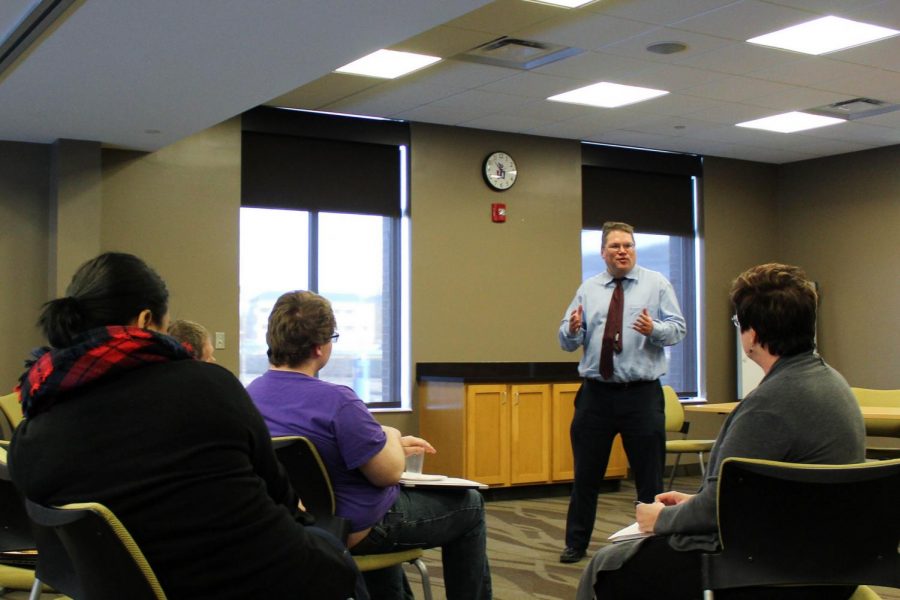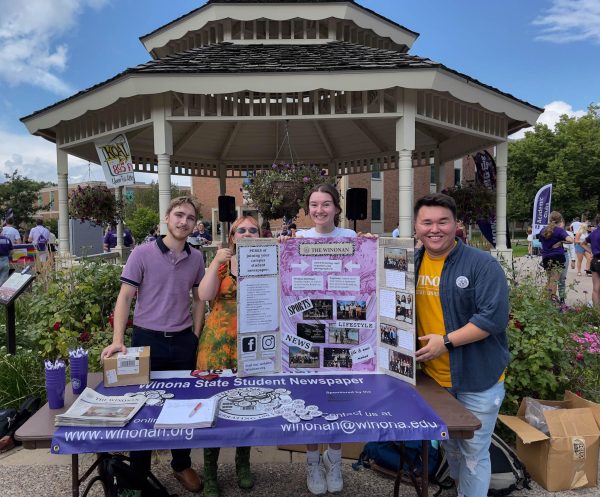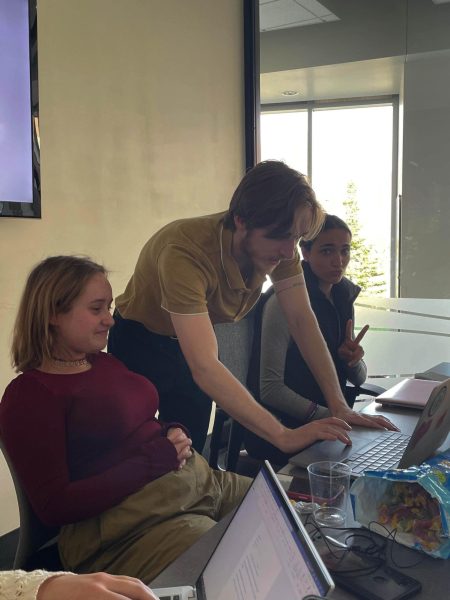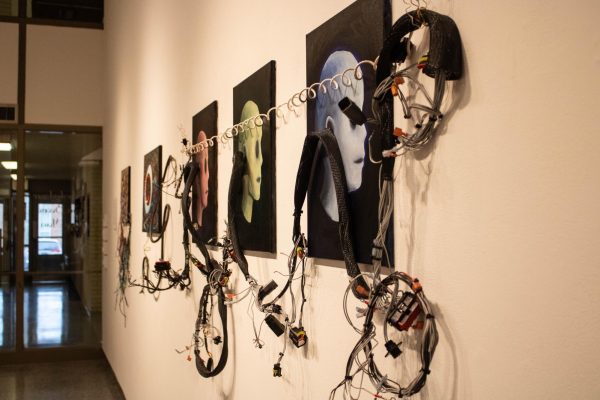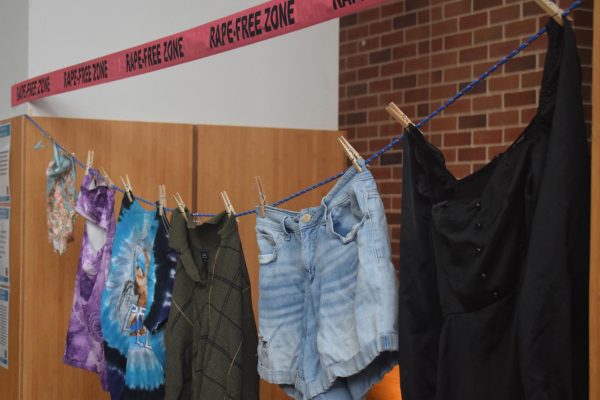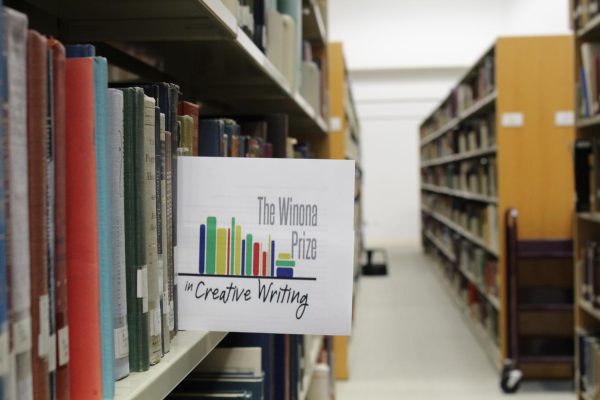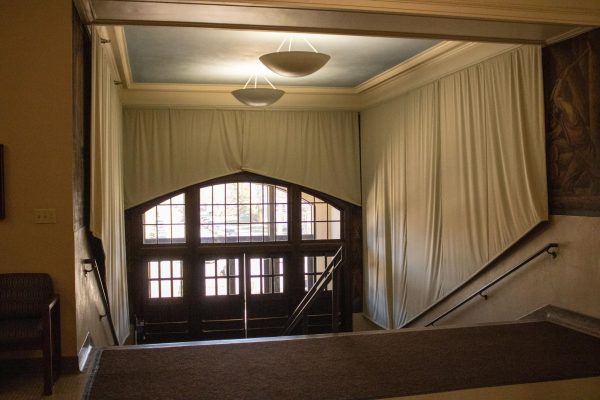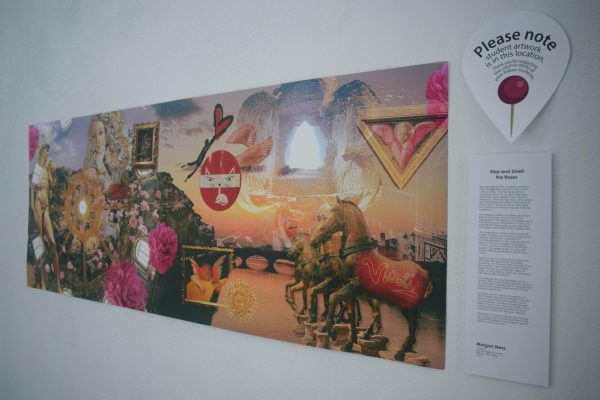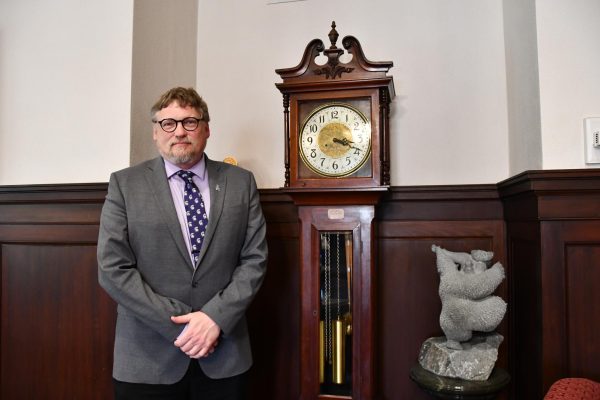Winona State holds public forum
The Winona State Commission on Academic Freedom and Free Speech hosted forums in Haake Hall on Tuesday, April 17 and Wednesday, April 18 for students and community members to discuss the role the university plays in protecting and promoting free speech.
April 25, 2018
Winona State University Value Statement on Academic Freedom and Free Speech a held a public forum at Haake Hall, in conference room 176B, last Tuesday, April 17 and Wednesday, April 18, which became the first step in a longer-term project to create a campus value statement covering academic freedom and free speech issues.
Scott Olson, president of Winona State University, attended the forum.
“I call for the newly-formed commission on Academic Freedom and Free Speech (CAFFS) to begin work on a guiding value statement for Winona State,” Olson said.
The value statement will reflect the beliefs, mission and vision of the university.
The issues surrounding freedom of speech have lead universities to create and adopt value statements.
The University of Chicago adopted theirs, calling it “The Chicago Statement” after having a communist party candidate give a lecture on campus, resulting in protests and criticism and holding the university responsible for bringing such a controversial speaker on campus ground. The president of the University of Chicago, Robert M. Hutchins, said our students should have freedom to discuss any problem that presents itself.
The actions of Hutchins, in making a value statement, made Olson want to follow by calling for a commission to form a goal: to write a value statement that would reflect the values of the university.
Rita Rahoi-Gilchrest, interim associate dean of the college of liberal arts and director of the commission, invited students and faculty to join the conversation.
Rahoi-Gilchrest had everyone break up into small groups to answer a series of questions about the freedom of speech and academic freedom at Winona State.
Groups shared their thoughts and opinions, and notes were collected. Common themes were found through the discussion such as regulation and policies versus guided value statement and the university’s involvement and participation of controversial topics or speakers.
Student and student organizations have the choice of bringing any speaker to Winona State. Yet, if a student wants to bring a controversial speaker to campus, the university needs some way of addressing what to do. A value statement may be a solution, to which students and faculty are welcome to share what they value as a community and university.
Although it was the first forum of the year, it will not be the last.
“We are taking the first steps in what will likely be a longer-term process engaging the Winona State campus community well into the start of the next academic year,” Rahoi-Gilchrest said.























































